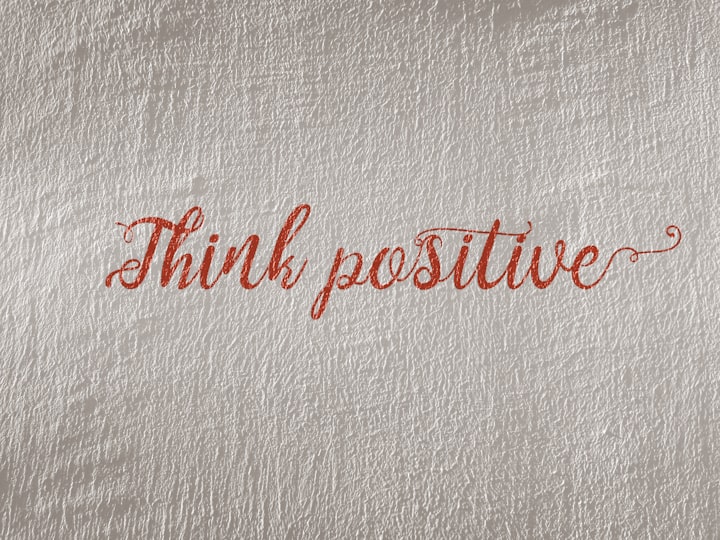How I Stopped People-Pleasing and Started Living Life on My Own Terms
You can be a good person and still say no
People-pleasing = low self-esteem
From always saying yes, breaking promises with ourselves, sacrificing our values to help someone out, enabling toxic behaviours, keeping silent to prevent hurting someone's feelings even though they've hurt ours, being inauthentic about our true feelings to siding with the majority when we completely disagreed, people-pleasing behaviours come in all forms.
When I reflect back on my life, I've had my fair share of trying to get people to like me. Starting in my teen years, it was about doing anything to rise up in the ranks of the high school hierarchy. As one of the few Asian kids in a predominately Caucasian school, I desperately wanted to fit in, be cool, seeking approval from the popular kids.
Then came the young adult years when it was about having the coolest gadgets, wearing the latest fashion trends, going to the newest restaurants, gossiping, spending frivolously, creating drama, drinking like a fish, and of course, getting attention from men. I cared more about what others thought than what I thought. I valued their opinion of me more than my own. Deep down inside, what I lacked was self-esteem.
Now married with 2 kids and comfortably settled in her mid-30s, I've stopped trying to be someone else, embracing my authentic self and coming into my own. Here are 5 things that I did that helped me stop people-pleasing and started living my life on my own terms.
1. Voicing my unpopular opinions
For years, I pretended to like things I hated and hate things I liked. Here are some of my unpopular opinions:
As a Canadian, I hate watching hockey. Actually, I hate watching all sports. I find them boring and uneventful.
Also, I hate snow, anything related to being in the snow or being cold. I was born and raised in Vancouver, literally 15 minutes away from the snowy mountains and I have no interest in going skiing or snowboarding.
I hate camping. I want to poop in a toilet, have a hot shower and sleep in a comfy bed. Greasy hair, a stinky tent, bugs, bites, smoky clothes and fear of bears aren't fun; it's torture.
I don't enjoy shopping, online or in-store. I do not enjoy researching products even though I'm a mom. The number of choices frustrates me. But I love grocery shopping.
Speaking of mom stuff, I didn't like being pregnant, the first and the second time. Also, not all babies are cute. However, my babies obviously are, even though I don't believe in putting pictures of them on social media.
Travelling is ok but I wouldn't be devastated if I couldn't. The digital nomad life seems exciting but in reality, I'd just want to settle in one place to call home.
I don't care for Starbucks. Actually, I don't buy coffee. I make it at home.
Brunch is meh. Seriously, after cooking it at home for these past years, I can't justify paying 20 dollars for a couple of eggs and some bread.
Getting a new phone, laptop, TV or anything technology-related doesn't excite me. It's another tool that I'll have to relearn how to use.
A purse is a purse, Coach, LV, Chanel. Wait, I don't carry a purse.
I don't watch the news or follow politics (and no, I'm not ignorant).
I love pineapple on pizza but I don't like olives. Ketchup chips are yummy.
Big weddings are a waste of money. So is buying a luxury car, expensive furniture, designer brand clothing, fancy wine…but wait…
I don't like drinking. Period.
2. Expressing my true feelings when I'm upset
Feelings can be difficult to express depending on who I'm communicating to. This is especially true when someone has said or done something that upset me.
For years, I would keep it in, pretending I wasn't affected because I didn't want to make the other person uncomfortable, sparing their feelings at the cost of my own. I would avoid confrontation and conflict to maintain harmony, appeasing others even when my happiness was at stake.
In addition, I used to believe that expressing emotions and being sensitive were signs of weakness and I wanted to prove to others that I had thick skin, that their words didn't hurt me, rolling off my back as I fiercely protected my ego.
However, what I was doing was internalizing those negative emotions and letting them get the best of me; it was unhealthy, toxic and disempowering. I realized that if they don't know how I feel, they won't know that what they said had consequences and it's only a matter of time, they'll say them again, triggering me all over again.
From the time a coworker commented on my eating habits while I was pregnant to the time my mom kept pestering me about how small my house was, I didn't stay silent. I no longer apologize for my feelings. I'd rather have peace with myself than suppress who I am to avoid disrupting the peace with others.
3. Only saying sorry and taking the blame when I've actually done something wrong
Sorry for talking about my successes, for being proud of myself, for sharing my achievements…
Sorry for being vain and posting pictures of myself, for telling you how amazing I feel, for talking about my weight loss, for being committed to a diet and exercise regimen…
Sorry for making this request, for asking for help, for being in the way, for being a burden…
Sorry for my messy house, for not accomodating everything that you wanted, for not being able to do what you asked for even though it was out of my control…
Apologizing when I hadn't done anything wrong was a running theme throughout my 20s. As a Canadian, I'm notorious for apologizing. In addition, as a woman, I've been conditioned from an early age that I need to apologize first in order to be perceived as likeable and accepted by others because females are supposed to be polite, graceful, courteous, respectful and demure beings.
Those who appear to be more agreeable are those who make guys swoon, get rescued by prince charming, get promotions, get makeovers, and get invited to all the parties. I was scared I would be perceived as an arrogant, demanding bitch if I showed confidence, being bold by talking about my strengths, making and denying requests.
However, I no longer apologize when I've done nothing wrong. I don't take the blame when things go wrong and I had no control over the situation.
4. Being proud of both my cultures
As a child of immigrant parents, I grew up with 2 identities but didn't feel like I belonged in either. At family outings, I never felt Chinese enough. Some would question whether I understood the language. Others would assume I'd only eat sweet and sour pork.
I put pressure on myself to be more Chinese, pleasantly surprising them by speaking Cantonese, ordering the most traditional dish on the menu, and addressing everyone at the table by their correct titles. I didn't want to be perceived as a banana (yellow on the outside, white on the inside), someone who doesn't know a thing about her heritage.
Then when I was at school, I just wanted to look and act like everyone else. I wanted to blend in so that others would like me. I wore coloured contacts, dyed my hair, put makeup on, and dressed according to what was cool to look more Caucasian.
I prided myself on speaking English without an accent and writing with zero grammar errors. I wouldn't dare speak Cantonese in front of my classmates. I kept a tight lip when it came to sharing about my family and what we did over the weekend, whether it was watching a marathon of TVB variety shows or going to Chinatown to have Dim Sum with relatives. I'd get furious at my mom if she packed anything but sandwiches for my lunch.
As an Asian Canadian who grew up with Western and Eastern influences, I own my identity. I don't assimilate into either culture because I value certain customs and practices from each. I'm proud of who I am and I no longer pretend to be someone I'm not depending on who I'm trying to impress.
4. Setting and keeping boundaries
Boundaries can mean a lot of different things to people. Some have boundaries around accomodating unreasonable requests. Some have boundaries around enabling toxic behaviours. Others have boundaries around privacy and sensitive matters. It's easy to create boundaries for yourself; it's much harder to keep them and to ask others to respect them.
For me, the boundaries that I've had to put my foot down involve being in the middle of two people. From being forced to choose sides, asked to gossip behind a mutual friend's back so that the other feels validated, and acting as a double-sided sounding board, I no longer engage in this behaviour where I'm being pulled apart.
In addition, I refuse to play the telephone game. There have been numerous occasions where my mom would ask me all sorts of questions about my siblings, hoping I would spill the beans on what's going on in their personal lives; instead, I straight-up tell her to go ask them herself. I can say no and still be a good person with a kind heart.
Not only have I stopped putting myself in the middle, but I've also stopped expecting others to mediate my interpersonal conflicts. If I don't want to be a people pleaser, I can't expect others to be as well.
5. No more pretending to not know what I do know
When I was younger, I would pretend to not know things as a way to get people to talk to me. I honestly believed that if I played dumb, letting someone impart their wisdom on my already wise mind, they would like me. I didn't want them to feel inferior so I put up an airheaded front so they could feel superior.
For instance, when I was single, I would ask my dates all sorts of questions to make it seem like they were educating me on a topic I knew more than them about. Now that I think of it, I was actually encouraging mansplaining.
I remember one time when I was working out, I saw a dude I found attractive. As someone with a degree in Kinesiology who has been going to the gym since she was 14 years old, I pretended not to know how to use the lat pull-down machine. The guy happily helped me out, showing me how to adjust the seat height and the amount of weight as I stood there, grinning like a needy floozy. And no, I didn't end up with that guy.
With that said, I'm not going to pretend that I know everything there is about how not to people please; however, what I do know is that if I'm doing something for the sake of getting someone's approval, it's time to reassess my behaviour and start taking care of myself so that I feel loved and valued.
So Readers, what are your people-pleasing behaviours? How have you dealt with them?
This was originally published on my website on February 16, 2021
About the Creator
Katharine Chan
Sum (心, ♡) on Sleeve | Author. Speaker. Wife. Mom of 2 | Embrace Culture. Love Yourself. Improve Relationships | Empowering you to talk about your feelings despite growing up in a culture that hid them | sumonsleeve.com/books







Comments
There are no comments for this story
Be the first to respond and start the conversation.